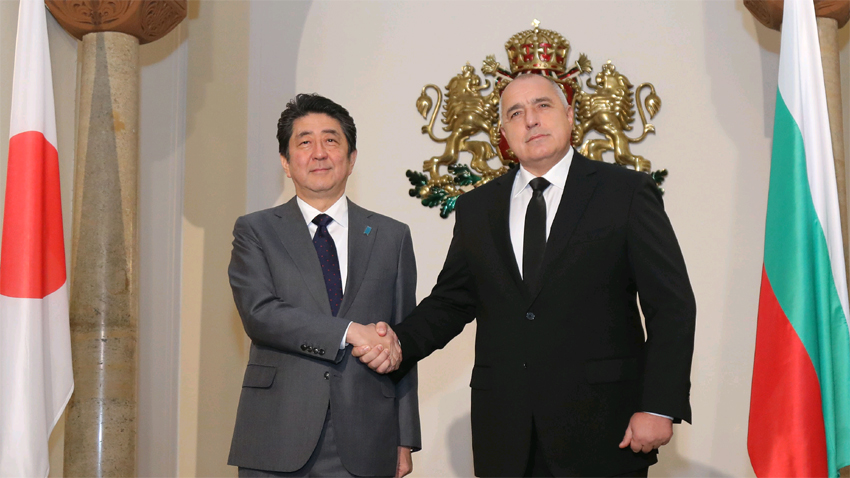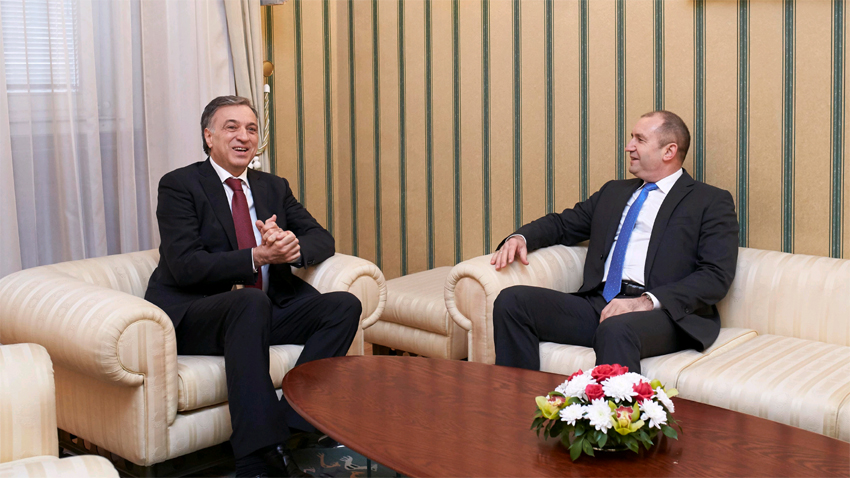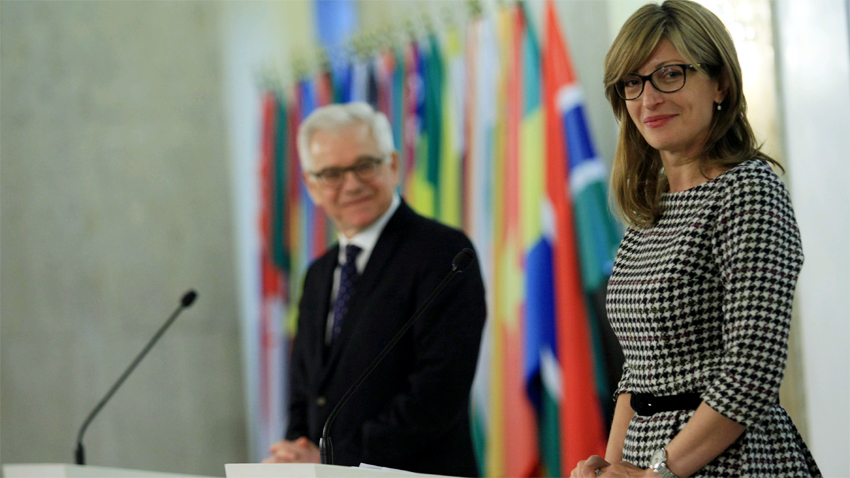Just days after Bulgaria took the rotating presidency of the EU for the first time, the country has become part of intensive diplomatic actions. For the first time in the history of bilateral relations between Bulgaria and Japan, a Japanese Prime Minister has paid a visit to Sofia. In a short period of time Prime Minister Shinzo Abe made an official visit to Bulgaria; Prime Minister Boyko Borissov left for Azerbaijan; Montenegrin President Filip Vujanović was welcomed in Sofia, and Polish Foreign Minister Jacek Czaputowicz, who has just taken office, met with Bulgarian counterpart Ekaterina Zaharieva. The US also did not miss the moment to wish the Bulgarian EU Presidency success with the visit of Deputy Assistant Secretary for Europe, Hoyt Yee. The series of significant foreign policy events culminated in the news that the Macedonian Parliament ratified the Agreement on cooperation and good neighborly relations, which Sofia had been expecting.
What is common between these different events and what does this activity suggest?
First of all, it must be pointed out that this intense activity in foreign policy shows in the most convincing way the place and role of Bulgaria on the international scene. Bulgaria is a medium-sized European Member State, but it is currently the focus of international observers, who are closely following each of its moves on the diplomatic front as President of the European Council. Bulgaria has shown that it would not remain indifferent to major international problems that affect the interests of the EU or its own.
Bulgarian Prime Minister Boyko Borissov went on a visit to Azerbaijan at the invitation of President Ilham Aliyev. This visit seems perfectly logical at the backdrop of Bulgaria's ambitions for building a gas hub that is to offer European countries gas from a variety of sources. The idea has received the support of Brussels and during the talks on the start of the Bulgarian Presidency of the Council of EU, European Commission head Jean-Claude Juncker publicly presented to the Bulgarian prime minister a draft of the planned gas hub.

And Azerbaijan is expected to deliver gas to this wholesale center. There is already a signed agreement on the delivery of 1 million cubic meters from 2020 onwards, but the Bulgarian government may insist on an increase in supplies as the agreed volume is quite modest for a European gas hub. Aliyev offered Borisov investments in the gas supply network for households in Bulgaria. But the links between the two countries will not be only through the gas pipelines, because a new regular airline, Baku-Sofia, is also expected to step up the dialogue between the two countries that are not so far away from each other.
The Asian direction in this country’s interests has acquired more real dimensions also with the visit to the country of Japanese Prime Minister Shinzo Abe. 
Before this visit no Japanese prime minister had come for an official visit to Bulgaria, although cooperation between the two countries has always been at a fairly good level. Now Tokyo seems to feel the need to get even firmer support at the backdrop of strained relations with North Korea and China's growing global ambitions. The Japanese prime minister saw that he could rely on Bulgarian support and demonstrated willingness to deepen bilateral economic co-operation.
Bulgaria ha placed its first European Presidency under the sign of the European integration of the Western Balkan countries. This is known by Montenegrin President Filip Vujanovic, and he apparently arrived in Bulgaria to meet with the Bulgarian president in order to find out more about Sofia's concrete plans in that direction.

In fact, this is the first Western Balkan head of state visit to Sofia after it took over the Presidency of the EU Council, which talks about Montenegro's willingness to pursue an active EU integration policy. By February, the Western Balkans are expected to have a common accession strategy.
One of the visits that deserves attention is the visit by Poland's newly elected Foreign Minister, Jacek Czaputowicz. Currently, his country's relations with Brussels are in crisis, and Poland is threatened with losing the right to vote in a united Europe. Therefore, Warsaw seeks allies and partners even outside the Visegrad Four.

Now, in its capacity as European President, Sofia has an even more important role, and Poland's efforts to win its support have doubled. Observers, however, do not fail to point out that Bulgaria has a much softer policy and is not inclined to engage in conflicts between Brussels and any member state. Whatever the results of these diplomatic actions, there is no doubt that Bulgaria is firmly committed to playing a much more active role on the international scene during its European presidency.
English: Alexander Markov
Photos: BGNES, BTANearly a month after the 27 October early parliamentary elections, the 51st National Assembly is still not able to begin its work because MPs are unable to elect their first among equals. Bulgaria's political impasse is compounded by burning concerns..
DPS-New Beginning MP Yordan Tsonev said in an interview with BNT that no one has requested support from their party for the election of National Assembly Speaker. Yordan Tsonev criticized We Continue the Change- Democratic Bulgaria for violating a..
''If the Constitution is not amended, there is no point in holding another election under the same rules and with the same bought, controlled and corporate vote'', the co-chairman of the parliamentary group of BSP-United Left Borislav Gutsanov said in..
The members of Parliament are rather skeptical before yet another attempt to elect a National Assembly Speaker. The candidates for Speaker of the..

+359 2 9336 661
